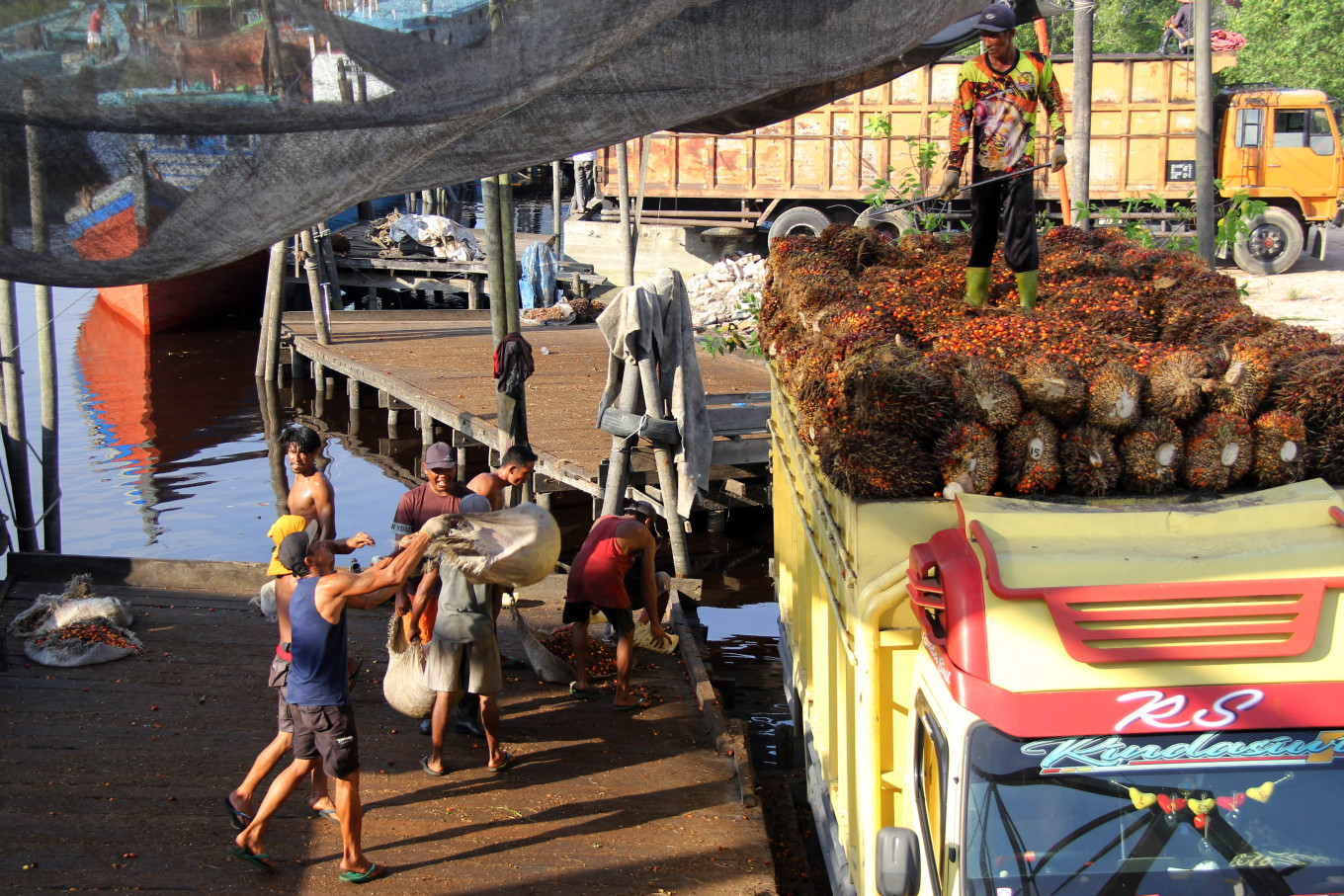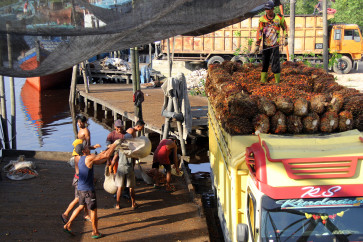Popular Reads
Top Results
Can't find what you're looking for?
View all search resultsPopular Reads
Top Results
Can't find what you're looking for?
View all search resultsWhy Indonesia's objection to EUDR has received global support
Many small and medium enterprises (SMEs) operate in remote regions with limited access to technology and understanding of the complex European Union regulations.
Change text size
Gift Premium Articles
to Anyone
T
he Indonesian Palm Oil Association (GAPKI) has been delighted that its opposition since 2022 to the European Union Deforestation-free Products Regulation (EUDR) for a vast number of agricultural products, notably palm oil, has been supported by governments and business associations across the world.
Last week, the United States government and farm producers urged the EU to postpone the enforcement of the EUDR which is scheduled to come into effect on Dec. 31 to ban the import of farm products produced from land that was deforested after December 2020.
The US supported the concerns of Asian, South American and African countries that the EUDR would sharply increase the administrative burdens imposed on smallholder farmers because of the requirement to prove that imported products did not originate from deforested areas, relying on geological and satellite data.
We can imagine the complex and byzantine bureaucratic procedures that must be fulfilled in the comprehensive due diligence and strict traceability obligations.
In fact, even within the EU itself, the agriculture ministers of around 20 member states -- led by Austria and Finland -- warned in April that the EUDR would create new bureaucratic hurdles for the farm sector at the risk of harming investment and distorting competition.
GAPKI Chairman Eddy Martono said that as a result of widespread resentment of the time-bound implementation and convoluted parameters of the EUDR, it is expected that the requirements will be further clarified, and its implementation will be delayed. A postponement would allow EU lawmakers to increase the clarity of the detailed criteria and enable the affected parties, such as the producing countries and importing companies in the EU, to prepare to comply with the requirements.
Indonesia, the world’s largest producer of palm oil, has been strongly campaigning against the EUDR not because of ignorance regarding deforestation but because implementing the regulation is not technically or administratively feasible, especially by the estimated 6 million oil palm smallholders in the country and hundreds of millions of other farmers in Africa, Latin America and Asia.



















